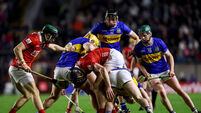Political limbo looms in Israel
Labour's decision could mean paralysis in post-election coalition talks, with neither Sharon nor Labour leader Amram Mitzna able to form a government, and could even force Israel into another election.
Polls suggest Sharon's Likud will emerge as the largest party but not with enough seats to control parliament, meaning it will have to share power.














